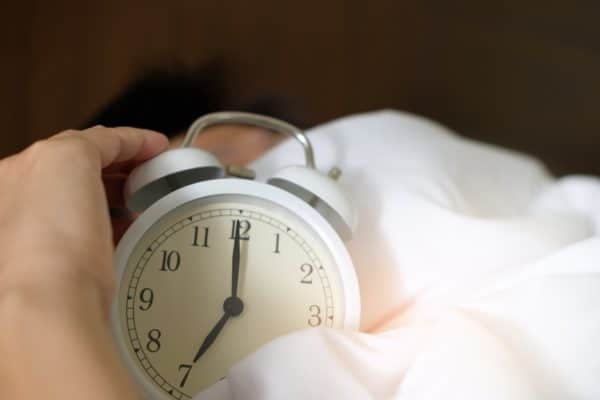Daylight savings time happens twice a year. It happens once in the late fall and once in the early spring.
The clocks either move ahead one hour, or like we saw in NYC this past weekend, go back an hour.
The change is necessary in order to acclimate the changing daylight hours. But, that doesn’t mean it’s’ easy.
In fact, daylight savings time can have a pretty tangible impact on the human body. It can mess up with your mood, your sleep schedule, and your overall well-being.
But, that doesn’t mean you have to suffer. Here are a few of the ways daylight savings time can wreak havoc on your body.
The Impact Of Daylight Savings Time On Your Mind And Body

1. Loss of Sleep
Daylight savings time can easily lead to a loss of sleep. This seems pretty obvious especially in the spring when you lose an hour. But, even this weekend, you might have woken up feeling lethargic and unenergetic.
And, that’s because as a whole daylight savings time messes with your internal clock. You might get an extra hour of sleep, but you also wake up earlier. This causes you to then have to adjust your sleeping habits.
You probably feel compelled to go to bed an hour earlier. Similarly, you might naturally wake up an hour earlier. And, this can lead to you feeling sleepy throughout the day.
Even Facebook found that after daylight savings time, people were more likely to comment on their sleepiness.
2. Increased Feelings of Lethargy and Sadness
Not only does daylight savings time have an impact on your sleep, but it also has an impact on your mental health.
Studies have found that daylight savings time can be linked to an 11 percent increase in depression cases.
This is because losing that extra hour of daylight can affect your brain in a negative way and trigger more emotional responses.

3. Decreased Productivity
Daylight savings time can also impact your physical actions and how readily and effectively you can throw yourself into tasks.
This is a combination of multiple factors — sleep, mental health, transition feelings and more. But, it all leads to an inability to perform simple tasks like writing an email, completing a project, or managing a team.
And, studies show that it can take up to three weeks for people to reach that same productivity level after daylight savings time occurs.
4. Increased Health Risks
This one might seem a bit harder to prove, but there are links to increased health risks after daylight savings time.
Some studies show a 5 percent increase in heart attacks after daylight savings time. And, another shows an increase by up to 10 percent.
This is likely a result of the impact this change has on the overall internal workings of the body. And, it also comes from the need for people to have to adjust and change their behaviors.
But, there’s no denying that daylight savings time affects more than just the clock.
Even with all of these side effects, however, you can still bounce back from daylight savings time.
How To Cope With Daylight Savings Time

1. Take Advantage of the Sunlight and Go Out For a Walk
One way to cope with the effects of daylight savings time is to get out of your apartment and enjoy the sunlight. You won’t be seeing a lot of it — especially if you work in an office. So, it’s important that you maximize your exposure.
This will ensure that not only are you getting the necessary D vitamins, but you also get a sense of wakefulness.
Going on a walk or sitting outside with a hot coffee can help you soak in the rays and help your body adjust to the changing daylight times.
2. Get Healthy Nutrition at the Beginning of the Day
Another important way to stay ahead of the negative effects of this seasonal time change is to make sure you’re staying healthy and eating well.
Start your day with a healthy breakfast to fill your body with nutrition. This will kickstart your metabolism, get your brain working in high gear, and prepare you for the day ahead.
Breakfast is the most important meal of the day, after all.
3. Stay Away From Naps
This one is more of a word of warning — don’t take any naps!
This will mess with your overall rhythm and make it even harder for you to establish a solid routine. You want to make sure you feel well-rested, of course. But, adding a nap into the mix can alter how your brain thinks about sleep and what times are appropriate.
If you start taking naps, you’ll throw everything out of wack and make it even harder to adjust as the daylight hours get shorter and shorter.


